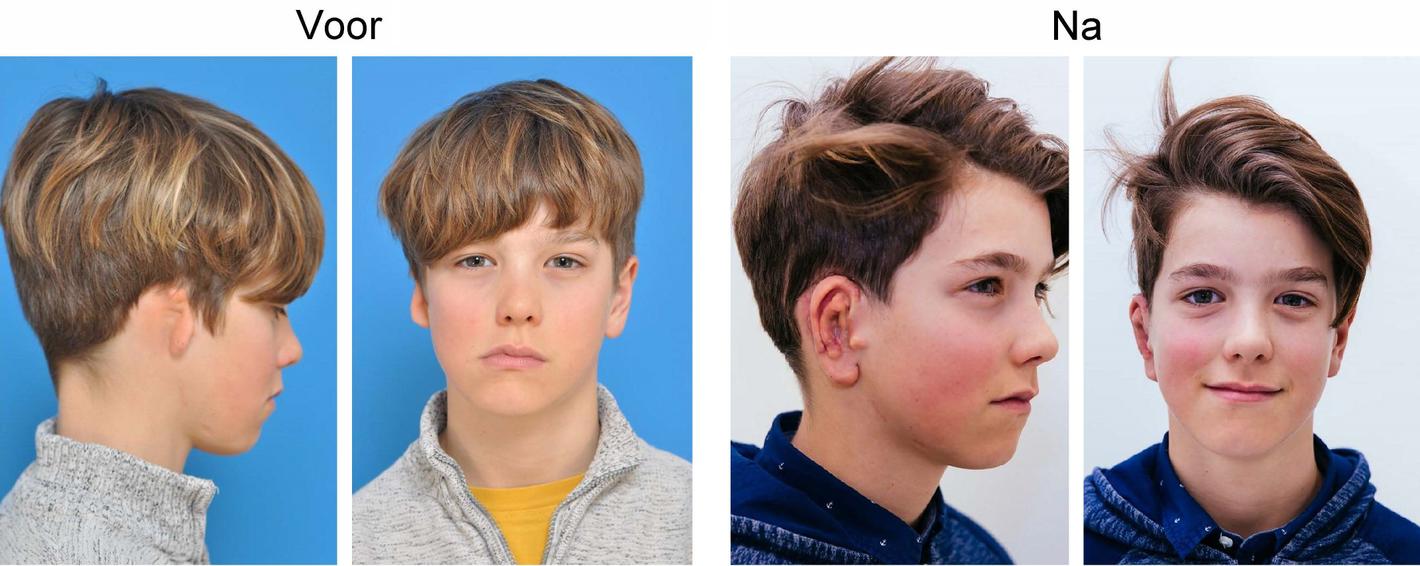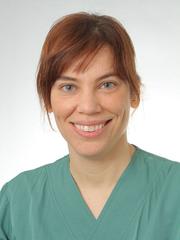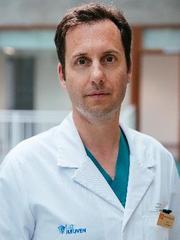A reconstructed ear
Microtia is a rare disorder in which the pinna is not fully developed or is missing completely. Since a couple of years patients can come to UZ Leuven for a reconstructive treatment. Prof. dr. Greet Hens, otolaryngologist and head-neck surgeon, established the pinna reconstruction technique and trained abroad for this.
The treatment consists of 2 surgeries. During the first one, some cartilage is removed from the ribs. This is used to construct the basic framework of the ear, modelled on the other ear if this exists. During that same operation the new ear is correctly placed and fixed under the skin, to allow the skin to become adherent to the cartilage. At least six months later, the second surgery is planned. Here the ear will be elevated, away from the scalp and the back will be adjusted with some of the patient's skin.

Lars, before and after his pinna reconstruction at UZ Leuven. © UZ Leuven
Effect on hearing
Prof. dr. Greet Hens: “The result is a realistic ear, without a risk of rejection reactions, because we only use the body's own tissue. It is however a purely esthetic procedure: it does not change the hearing in any way. Often the ear canal is missing from the affected ear, causing children to be hard of hearing on that side, even with the new pinna.”
There are other ways of improving the hearing. In some cases, the pinna reconstruction is combined with the implantation of a subcutaneous hearing device.
High demand
13 patients have already undergone a pinna reconstruction at UZ Leuven and demand is on the rise. Prof. dr. Hens: “The procedures all went well, and patients were all happy with the final result. Strictly speaking, a pinna reconstruction is not medically necessary but we should not underestimate the psychosocial impact. Children with microtia are sometimes regarded differently and even bullied. Most of them very much look forward to their new ear.”
Strictly speaking a pinna reconstruction is not medically necessary but we shouldn't underestimate the psychosocial impact.Prof. dr. Greet Hens
“Because treatment is only possible as of the age of 10, when the rib cartilage is fully grown, a lot of children have to wait a few more years. This has the additional advantage that they are old enough to also decide on their treatment.”
The pinna reconstructions at UZ Leuven are being performed by a multidisciplinary team. In addition to prof. dr. Greet Hens, a plastic surgeon (prof. dr. Jan Vranckx) and other otorhinolaryngologists (prof. dr. Christian Desloovere, prof. dr. Nicolas Verhaert and dr. Annelore Willaert) are also involved. If necessary, an oral surgeon or a human genetics specialist are asked for advice. Patients also receive psychological support.


